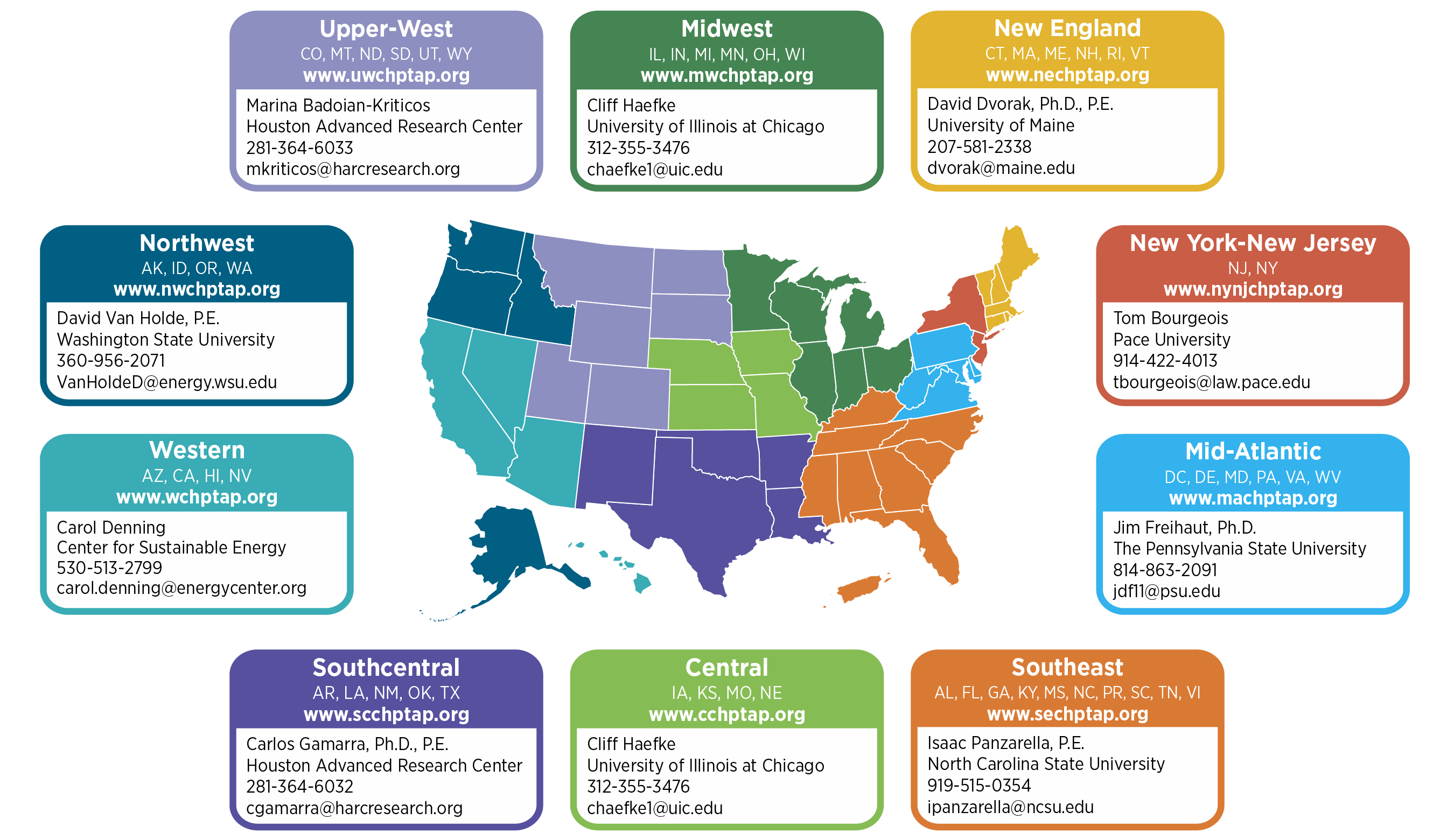What is CHP
On Site Energy Generation, CHP, or cogeneration is a form of distributed generation, usually located at or near the building or facility that will use the energy. CHP provides at least a portion of the electrical load and thermal energy for space heating or cooling, process heating or cooling, and dehumidification.
Power typically gets to a site from a centralized grid. Thermal services – cooling, hot water, or steam, come from a boiler or a chiller. Power generation and power plants typically have some sort of cooling system to get rid of the heat and release that waste heat to the environment.
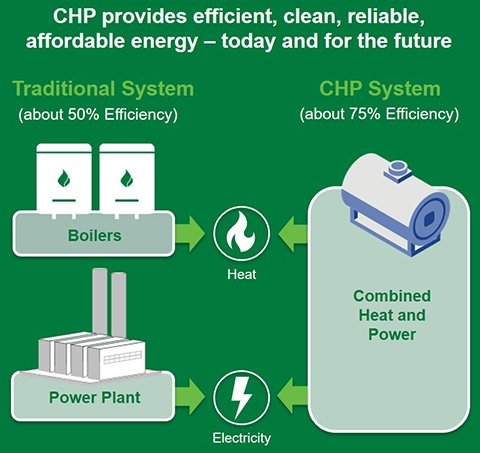
CHP allows the heat to be used for a useful purpose, not wasted. With CHP systems, power is generated onsite, which provides electricity, thermal and cooling onsite. CHP has a higher efficiency compared to standard power plants because there is no loss in the transmission and distribution lines to the site and no need to use a boiler or absorption chiller. The improved efficiency also leads to reduction in greenhouse gas emissions compared to the grid. Higher efficiency also translates to lower energy and operating costs.
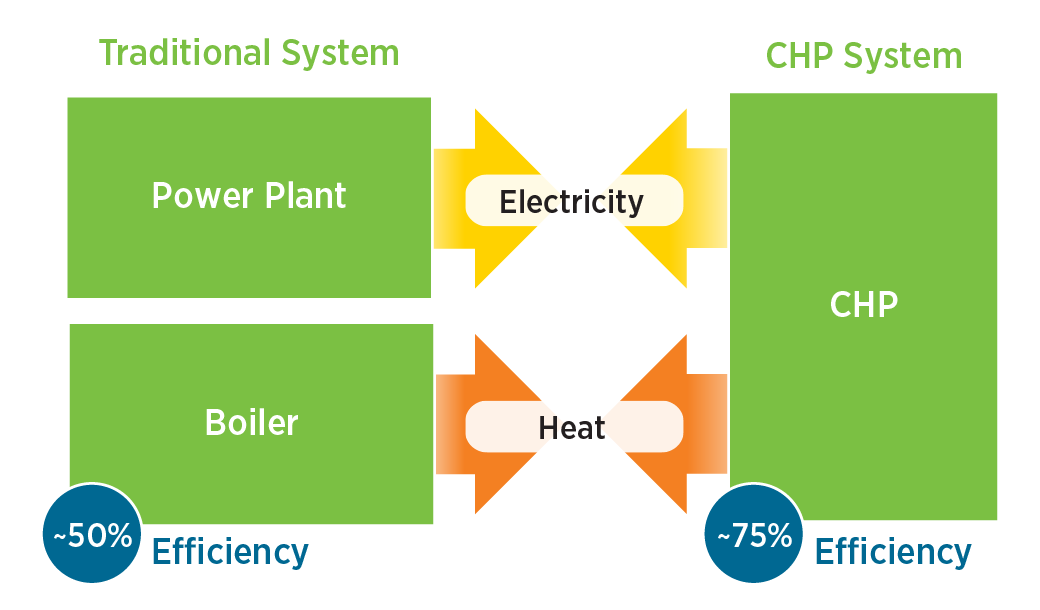
CHP can also reduce grid congestion and avoid distribution costs. Strategically placed CHP can also help defer costly investment to distribution and transmission improvement by bringing more power to the grid.
CHP is not one specific technology, it is an integrated energy system that produces electricity and captures waste heat to provide useful thermal energy for space heating and domestic hot water, and other industrial process, as well improve facility resilience.
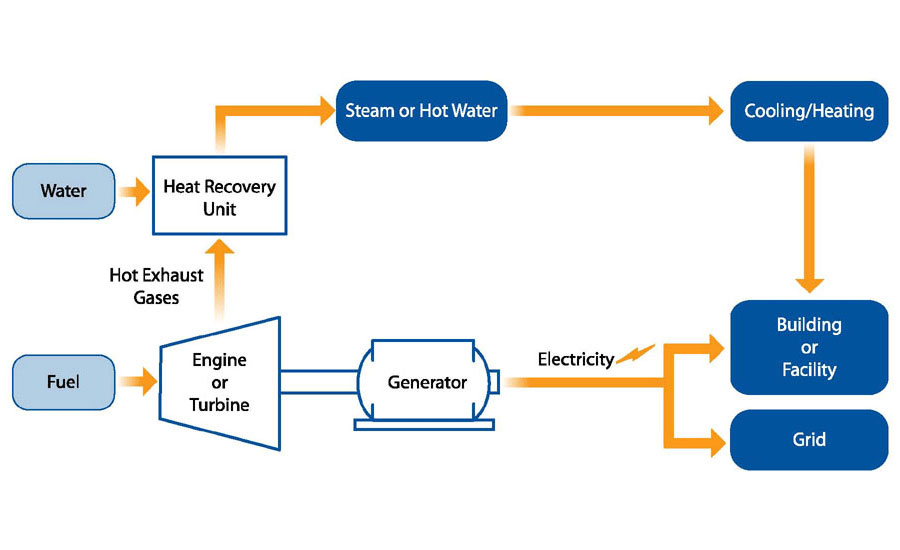
CHP can also be used for reliability. Many weather events through the past couple of years have affected the grid. CHP can be set up to function during a power outage.
CHP systems vary by size and type ranging from 5 kW to 250 MW and from large industrial and utility scale systems to small scale systems like multi-family housing, data centers, and hotels.
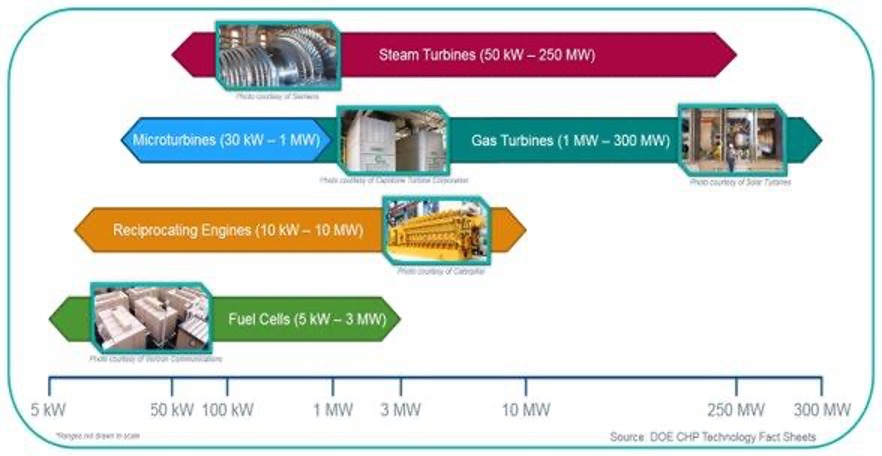
On Site Energy Generation Technical Assistance Partnership
The On Site Energy Generation Technical Assistance Partnership, or CHP TAP is a part of the US Department of Energy. The programs span across ten regions in the United States and its territories. The TAPs are comprised of subject matter experts in several fields. CHP TAPs do provide fact-based, non-engineering support and education on CHP, conduct stakeholder engagement, and provide technical assistance to determine the technical feasibility of CHP. If you are trying to determine whether CHP is viable on one of your sites, contact your local CHP TAP.
